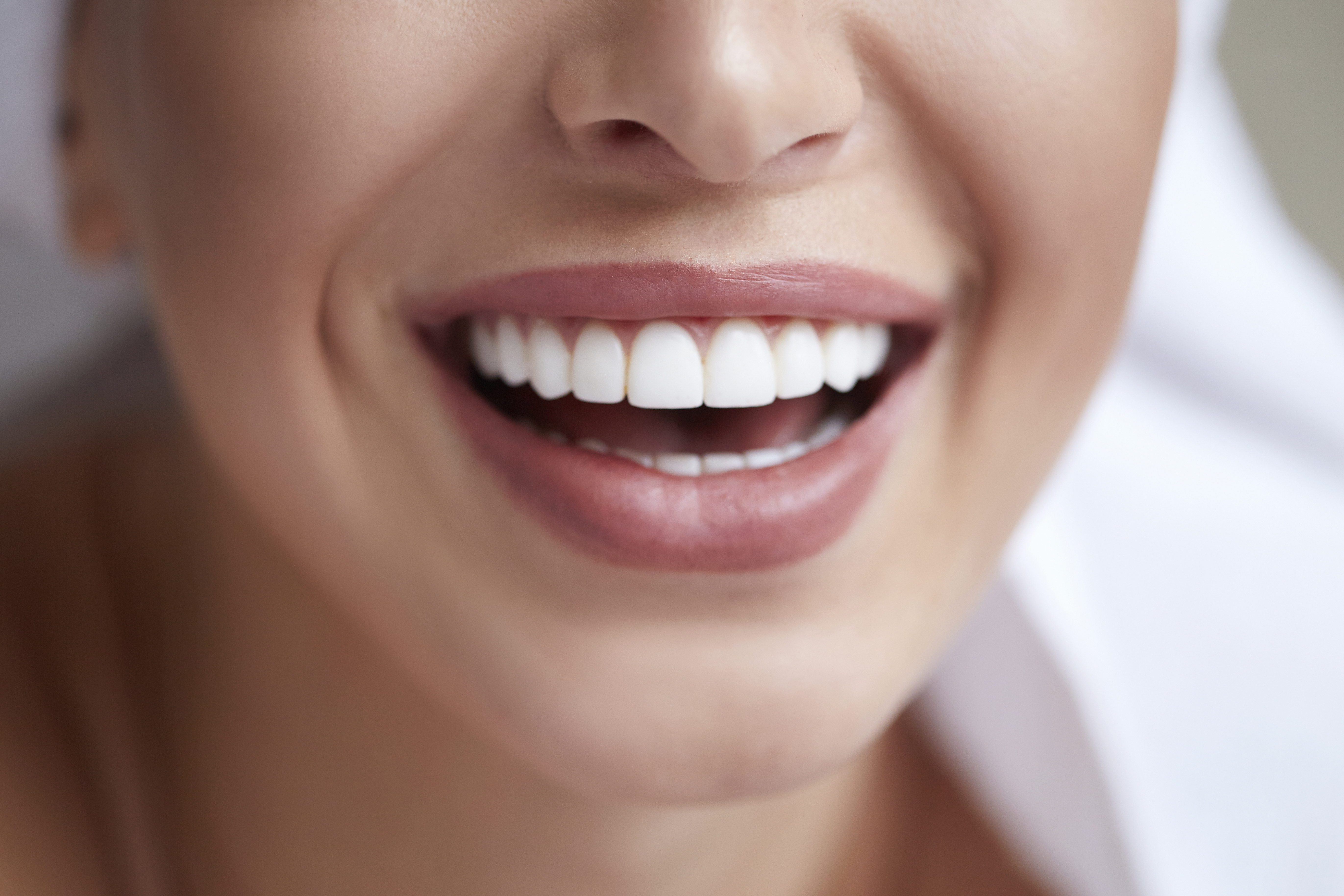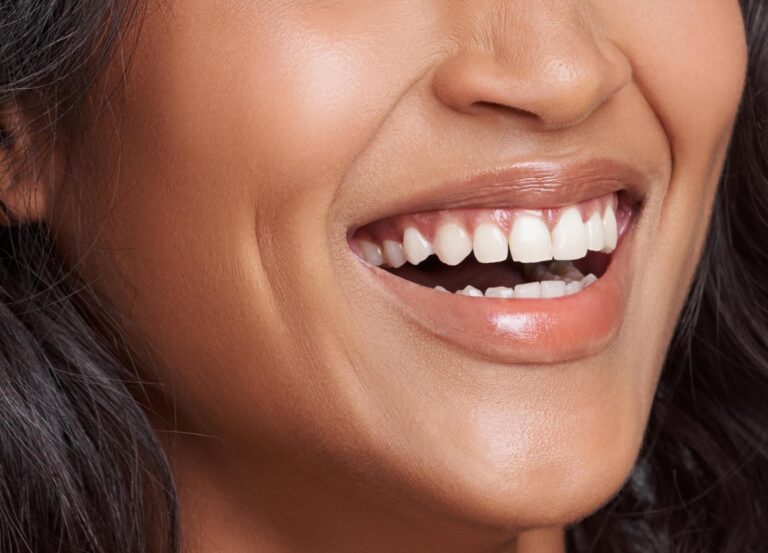Thanks to the need for social distancing and conservation of medical supplies during the COVID-19 coronavirus pandemic, the American Dental Association has advised that dentists limit their work to potentially life-threatening or severely painful dental emergencies for the time being, which translates to anything routine or cosmetic getting put on the back burner. That means your at-home DIY oral-care strategy could use a boost—and possibly some tweaks—to keep your pearly whites healthy until the industry is back to business as usual. We talked to dentists to find out what you can and should be doing in the meantime, to keep your smile intact.
Up your brushing game
Sure, you know to use a fluoride toothpaste twice a day, but you’re going to want to pay a little extra attention to how well and how long (two minutes) you’re brushing, now that you don’t have the support of your hygienist. Plus there’s another thing to consider here: while we haven’t seen evidence of a link between dental health and the pandemic, New York City-based cosmetic dentist Dr. Victoria Veytsman points out, “The COVID-19 virus lives in saliva, and the mouth and nose are the main pathways by which this virus gets into the lungs. If you’re not up on your oral hygiene, this is the time.” She adds that good oral care is especially important at night, when bacteria can sit for hours, and recommends cleaning your toothbrush with peroxide before and after use—and, of course, not sharing it with anyone in the household.
Other things to consider in the brushing department: Dr. Arielle Scherz, a dentist in Atlanta, recommends switching to an electric toothbrush, if you haven’t taken the leap already, for a more thorough (and often longer, thanks to built-in timers) cleaning. Last, if you’re prone to cavities, Beverly Hills, California, cosmetic dentist Dr. Matt Nejad suggests reaching out to your dental provider to see if prescription-strength fluoride toothpaste might help in your fight to keep your enamel in good shape.
Clean between teeth
There’s been some talk in recent years indicating that flossing may not be the cavity and gingivitis cure-all we once thought, but dentists agree that now is not the time to slack on the practice. Just make sure you’re doing it effectively by holding the string taut, sliding it down the edges of every tooth, and gently taking it all the way down to your gums. Even better: switch to a water-jetting flosser, like the Waterpik. “In several studies, the water flosser combined with brushing is determined to be more effective than brushing and flossing,” says Dr. Nejad. But, he says, if you don’t have one, that’s OK—the point is just to get in between your teeth. “Either one done regularly and well will significantly minimize the incidence of cavities.”
Be vigilant about mouthwash
Mouthwash is another “must” among the dentists we surveyed. One with alcohol works, though a study by BiodMed Research International suggests that opting for one without it is gentler on dental restorations. Dr. Nejad suggests a formula with peroxide for a little whitening boost. Colgate Peroxyl checks both boxes.
Related: What Is Dental Anxiety, and Can You Overcome Your Fear?
Leave mild chips alone
“Although it may be traumatic, a chipped tooth generally does not count as a dental emergency,” says Dr. Scherz. So if you find yourself with a nick, it’s likely you can simply leave it for now, but if you’ve got pain, call your dentist—he or she will try to get you in to deal with any nerve issues.
Otherwise, just keep the area clean, says New York City dentist Dr. Jennifer Jablow, who adds a warning: “Do not ever use Krazy Glue to put it back on the tooth—it is toxic.”
Chew with care
Dentists agree that not chomping down on hard and chewy foods (think ice, peanut brittle, or Starbursts) will help keep your teeth and dental work in one piece. And if you find yourself nervously chewing on pen caps or your nails, force yourself to quit—think of it as touching your face, a no-no in the fight against COVID-19. It can be tough to stop if it’s a lifelong habit, but Dr. Najad has two suggestions: “You can coat the pen cap [or your nails] with a bitter varnish, like Stop the Bite, or find something else to chew instead, such as [sugar-free] gum.”
All this advice goes double for those with crowns, bridges, implants, and the like: now is the time to handle your expensive dental work with all the TLC you can muster. If any of it happens to dislodge despite your best efforts, call your dentist to see if you might need an in-office emergency visit.
Wear your night guard
“With all the stress in the world right now, those [who] have a tendency to grind their teeth are going to be more susceptible to it,” says Phoenix cosmetic dentist Dr. Brian Harris, so reach for your night guard, if you have one. If you don’t, some of the dentists we talked to thought the over-the-counter kits were a fine solution for a short period, while others, like Dr. Nejad, worry that because they’re not custom-fit, they might do more harm than good. Instead, he suggests, “If you have a retainer, [customized] bleaching tray, or Invisalign, you could wear that.”
Go light on stain removal
It might seem like a good idea to use the extra time at home to try out a new whitening kit, but it’s best to hold off, insists Dr. Rick Mars, a dentist based in Miami. “Should a complication arise during this period, you might be hard-pressed to find a dentist who is able to address your issues from these do-it-yourself dental treatments,” he warns.
Instead, concentrate on warding off new surface stains in the meantime. Dr. Harris suggests brushing after eating staining foods like soy sauce or red wine with whitening toothpaste that’s gentle enough not to cause enamel wear or sensitivity. In other words, skip the extra-whitening formulas.
Keep up with aligners
For patients in the middle of treatment with aligners, just keep wearing them, says Dr. Mars, but contact your dentist for instructions on the pace at which you should continue. If you’re due for a new set, call your dentist to see if it’s possible to have your next set mailed to you or exactly how he or she thinks is best for you to proceed. “Bottom line is, don’t stop wearing your aligners,” he says.











